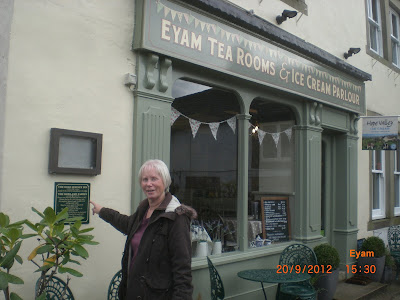10:00 Yesterday we spoke on zoom to Sarah, our younger daughter who lives in Perth, Australia, with her family. Today we speak to our elder daughter Alison, who lives in Haslemere, Surry, together with Ed and their 3 children, Josie (14), Rosalind (12) and Isaac (10).
Alison reminds us that it's her second week as a teaching assistant at a local primary school. Like all schools in England during this current lockdown, the school is basically shut to most children, but has to stay open for the children of "key workers": nurses, doctors and the like. Alison is totally untrained, but she has been bringing up 3 children of her own, so she has a rough idea of how you supervise children, to put it mildly!
She and two other teaching assistants are at the moment having to look after children in their first 2 years of schooling: the number of children varies from day to day, according to their parents' work rotas, but usually there are between about 8 and 12 kids to supervise. Most of the children are perfectly easy to supervise, but there's the odd one or two that can be more difficult if things go against them - oh dear!
Anyway Alison is obviously coping - we knew she would. She's incredibly calm and patient, and she knows exactly what to do when children step out of line, which is also useful!
11:00 For Lois and me, it's a so-called "Danish day" today, which we always find totally riveting but also totally exhausting, with us both ending up with backache from sitting hunched over the laptop, and with the seeds of a possible later headache, as the result of concentrating, speaking and hearing a foreign language, and trying to cope with Skype's lack of consistent audio quality- oh dear (again)!
The programme for today is that we will be holding our U3A Danish group's fortnightly meeting this afternoon at 2:30 pm online using the Skype program.
As far as we know at the moment, we should all be present apart from Scilla, the group's Old Norse expert: she rings me up at lunchtime to say she won't be joining us. She's staying with her son Ben in Brighton at the moment, and although she doesn't say so explicitly, Lois and I are guessing that Ben won't be around to be her IT support, which is a pity. Scilla can't really cope with Skype on her own. Poor Scilla !!!!!
14:25 Lois and I sit down at the laptop and wait for the other group members to log in.
14:30 The meeting starts. Jeanette, our only genuine Danish member, is trying to translate the Danish word "Rigspolitiet" into English, and she tries "Metropolitan Police". We try to tell her, however, that this isn't correct. "Rigspolitiet" is Denmark's National Police Force, while the UK's "Metropolitan Police" is just the police in London.
Lois and I realize at this point that once again the UK is out of step with the rest of Europe. Unlike the other countries the UK doesn't really have a truly national police force: all police forces are strictly local, normally organised at county level, or by a large city. And I've got a feeling it's the same in the USA, Australia etc.
Is this - the principal of not having a national police force - something that we look on as a vital bulwark against authoritarian government, or is it just an accident of history? I don't know, but I think we should be told! One thing I know for certain: the rest of Europe must be jolly glad they've got rid of us, now that Brexit has finally happened - that's for sure!!!
16:30 The meeting ends and Lois and I collapse in a heap from total exhaustion - we're getting old, no doubt about that!!!!
20:00 We settle down on the couch and watch a bit of TV: an interesting documentary called "Are Women The Fitter Sex?".












No comments:
Post a Comment